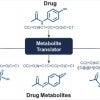
Deep learning gives drug design a boost
A computational tool created at Rice University may help pharmaceutical companies expand their ability to investigate the safety of drugs.

Deep learning gives drug design a boost
A computational tool created at Rice University may help pharmaceutical companies expand their ability to investigate the safety of drugs.
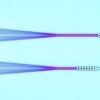
Gentle probes could enable massive brain data collection
The National Institutes of Health is backing a Rice project to continue the development of flexible nanoelectronic thread to gather information from neurons. The implants could help find therapies for neurological disorders.
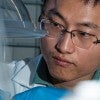
Funding flows into liquid fuel strategy
The National Science Foundation awards a $2 million collaborative grant for the development of methods to convert carbon dioxide into liquid fuels.
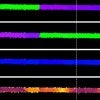
Boundaries no barrier for thermoelectricity
Rice researchers show how thermoelectricity hurdles some defects, but not others, in gold nanowires. The discovery has implications for making better thin-film electronic devices.
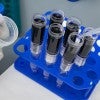
Three research teams earn Dunn Awards
Three teams of Rice University and Baylor College of Medicine researchers have been named winners of the 2020 John S. Dunn Collaborative Research Awards.
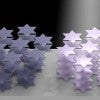
Ambient light alters refraction in 2D material
Microscopic crystals in tantalum disulfide have a starring role in what could become a hit for 3D displays, virtual reality and even self-driving vehicles.

Pope picks Rice professor for science academy
Rice University physicist José Onuchic has been appointed by Pope Francis to the Pontifical Academy of Sciences.
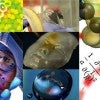
Largest gift in Rice history establishes The Welch Institute
The Robert A. Welch Foundation announces the largest single gift in the history of Rice University, $100 million, to establish The Welch Institute for world-leading advanced materials research.
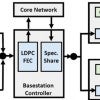
NSF backs first community platform for smarter wireless
Rice University researchers, with National Science Foundation backing, develop a community platform, 3DML, to accelerate machine learning for next-generation wireless networks and mobile applications.
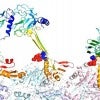
Protein ‘chameleon’ colors long-term memory
Researchers model the binding structures of actin and associated proteins they believe are responsible for the formation of longterm memory.

Small quake clusters can’t hide from AI
A deep learning algorithm developed at Rice University analyzes data from a deadly landslide in Greenland to show how it may someday predict seismic events like earthquakes and volcanic eruptions.
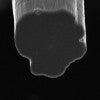
No limit yet for carbon nanotube fibers
Rice University researchers report advances in their quest to make the best carbon nanotube fibers for industry.
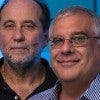
NSF renews Rice biological physics center
$12.9 million in funding backs Center for Theoretical Biological Physics research into mysteries at the intersection of biology and physics.
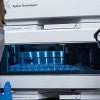
Engineers enlist fungi to advance against disease
Rice University engineers find the mechanism in fungus that produces a potential drug scaffold. The National Institutes of Health awards a multiyear grant to the lab to continue its work.